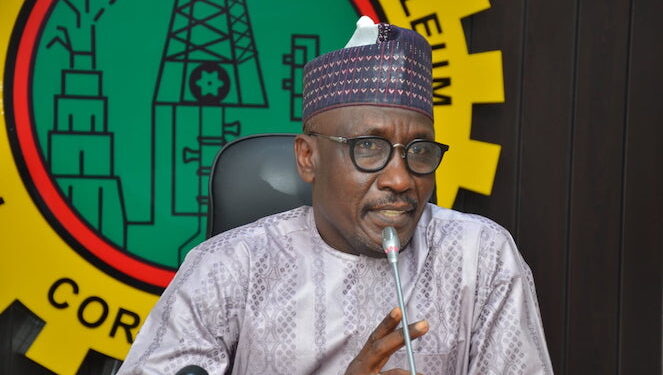The Nigerian National Petroleum Company Limited, NNPC Limited, said that monthly gasoline subsidies exceeded N400 billion.
Its Group Chief Executive Officer, Mele Kyari, disclosed, who disclosed this Friday in Abuja at the ongoing Final Cutover to NNPC Ltd, from being a corporation, that the oil company was spending about N202 as subsidy on every litre of petrol consumed across the country, and that about 65 million litres of Premium Motors Spirit,PMS was pumped daily onto the market by NNPCL to keep the country moist.
He complained that the monthly subsidy of over N400 billion had put a tremendous strain on NNPCL’s financial flow, but he pledged that the oil company would continue to satisfy its duties by supplying Nigeria with petroleum.
He stated, “By law and the provisions of the Appropriations Act, there is currently a subsidy on the importation of petroleum products, specifically PMS, into our country. In terms of current data, the landing cost was approximately N315 per litre three days ago.
“Our customers are present, and we are transferring N113/litre to each of them.” This translates to a difference of around N202 per litre of PMS imported into the country. N202 multiplied by 66.5 million litres multiplied by 30 will give you a monthly subsidy of approximately N400 billion.”
According to him, despite being provided for in the Appropriations Act, the NNPCL continued to fund the petrol subsidy without reimbursements from the Federal Ministry of Finance, Budget, and National Planning.
He stated, “There is a provision in the budget for it. Our nation has made this decision. Therefore, we are pleased to deliver this, but I must emphasize that it is also a strain on our cash flow. You will agree with me that it will be incredibly difficult to continue funding this from the company’s cash flow if you do not receive reimbursements from the Ministry of Finance. We are collaborating with them (the finance ministry), but it has a significant impact on our cash flow. Nevertheless, we will continue to support this nation and provide energy security.”


